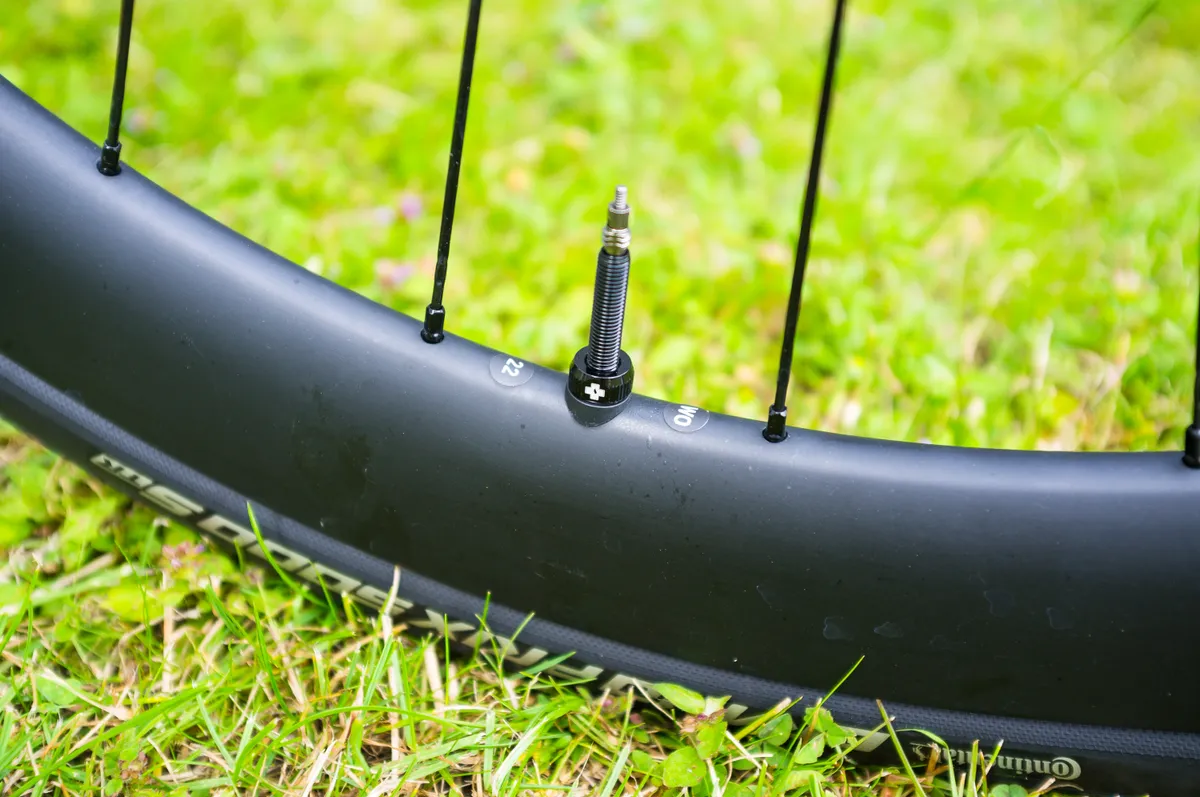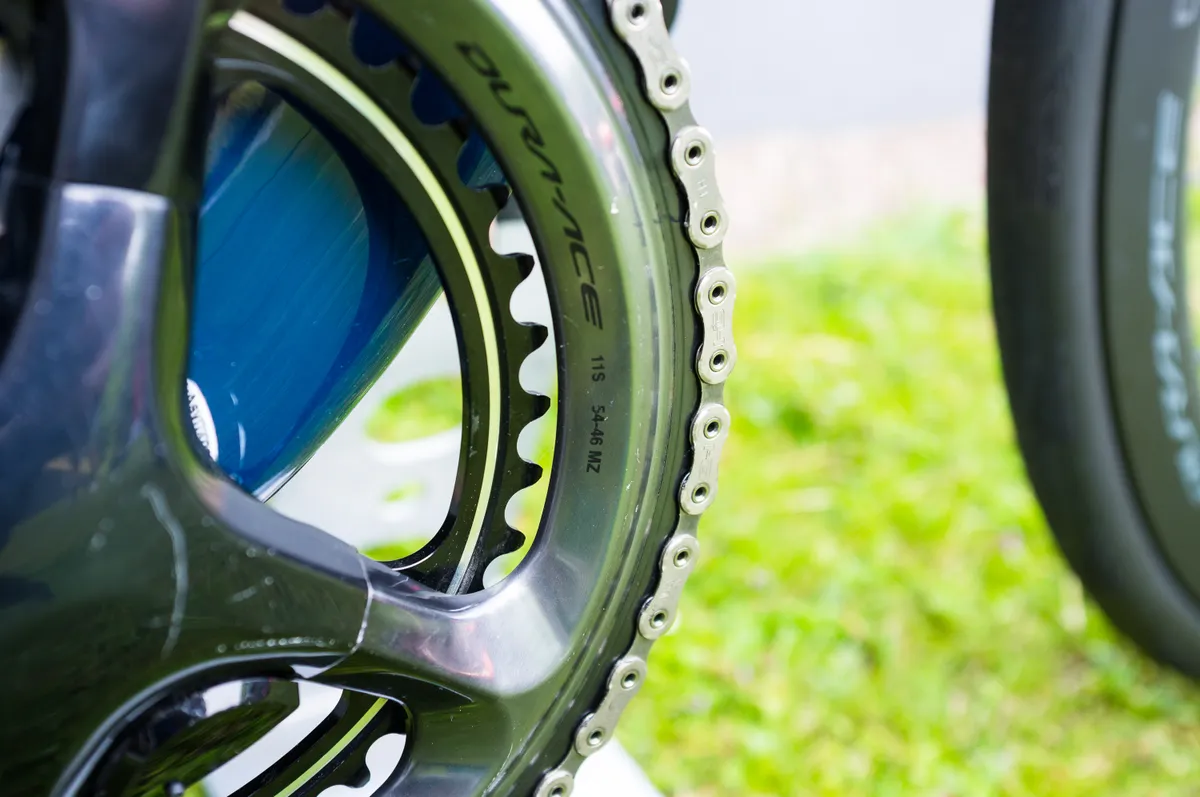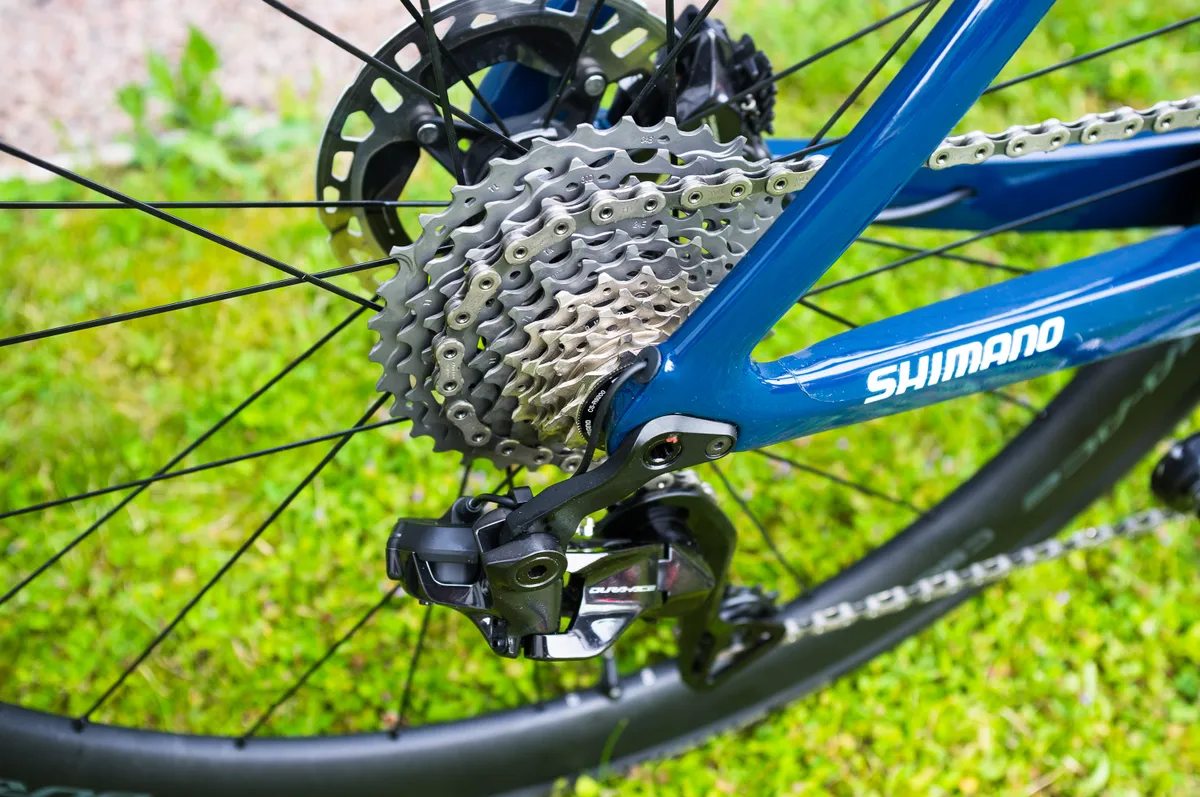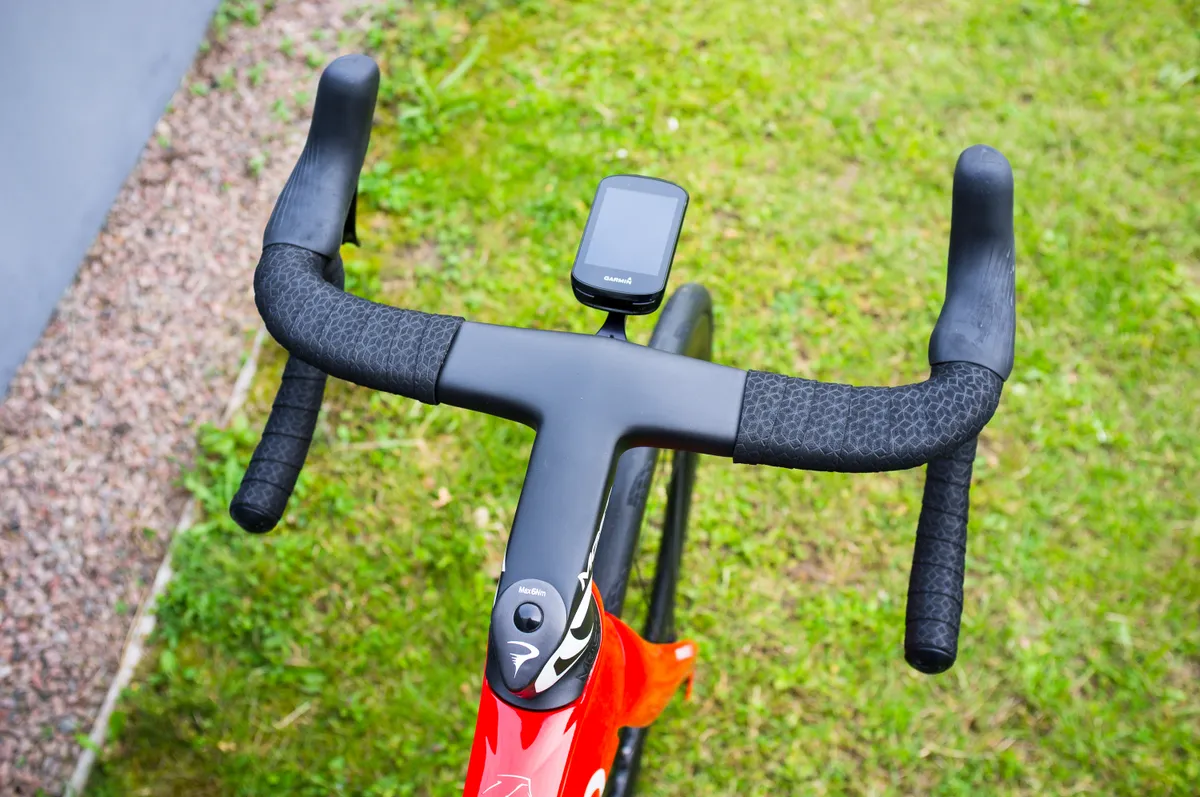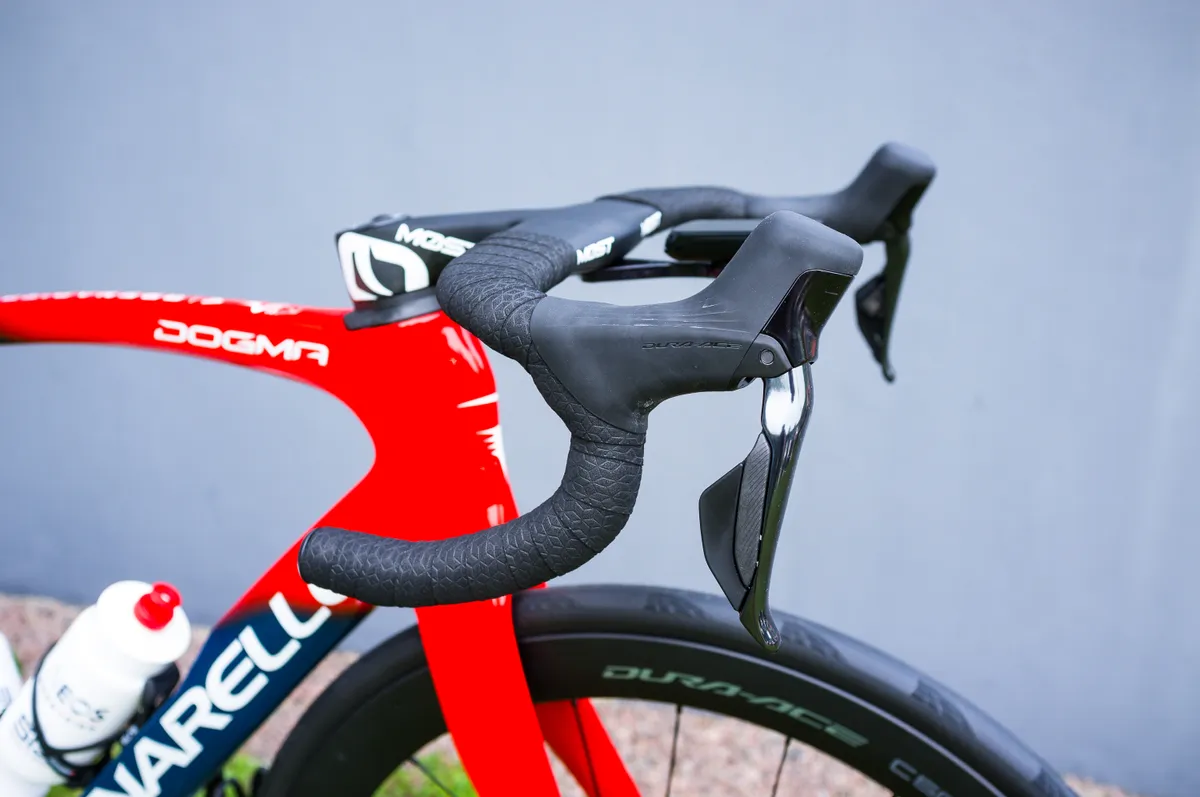With Tom Pidcock taking an incredible victory atop Alpe d’Huez and his team-mate Geraint Thomas moving up into third place on the general classification, Team Ineos-Grenadiers are flying high at the Tour de France.
Of course, the rider is what makes the ultimate difference, but we all know having a good bike doesn’t hurt either.
What better time, therefore, to take a look at Team Ineos-Grenadiers' Pinarello Dogma F – the latest all-round superbike from the Italian brand.
Dogmatic pursuit of performance
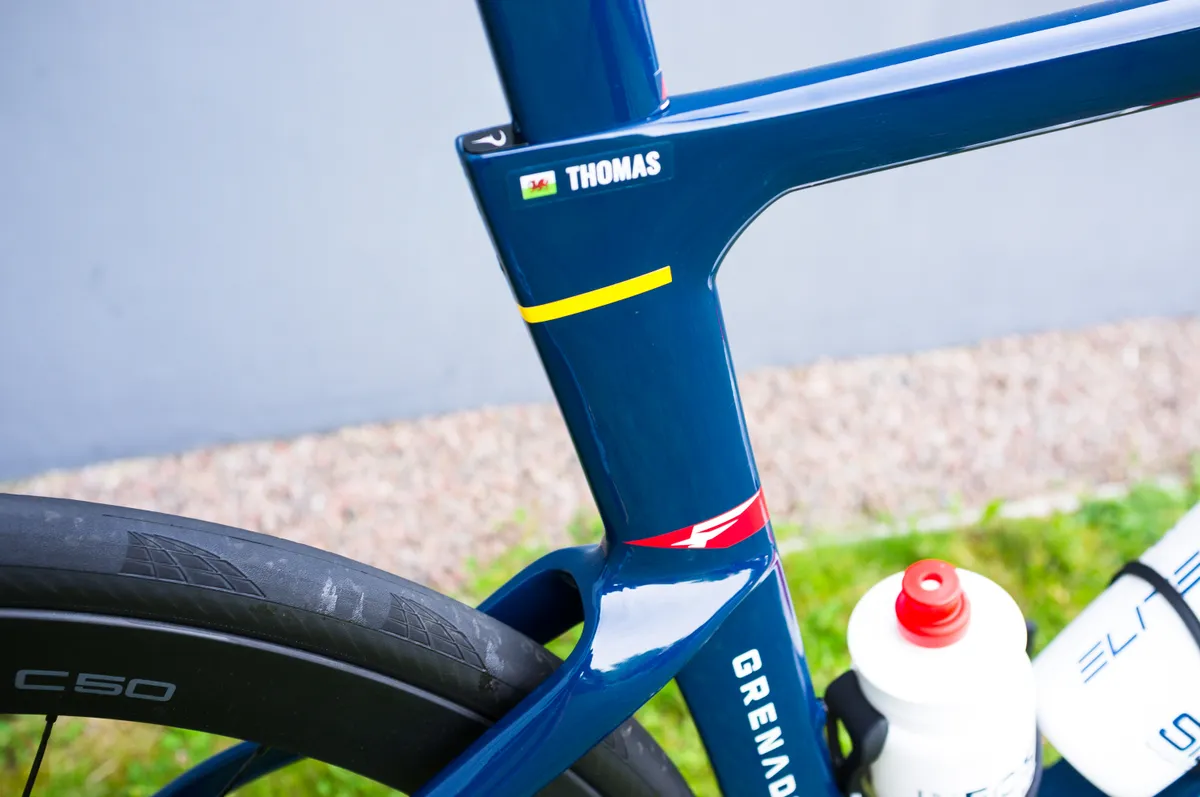
This particular bike belongs to Geraint Thomas, the 2018 Tour de France champion (as denoted by the small yellow stripe at the top of the seat tube).
Thomas took that victory aboard a Pinarello Dogma F10, an aero road bike with rim brakes and tubular wheels. Bike tech has moved on considerably since then, though.
Thomas, Pidcock and their team-mates are now all using a bike equipped with the hydraulic road disc brakes, tubeless tyres and one of the latest 12-speed electronic groupsets.
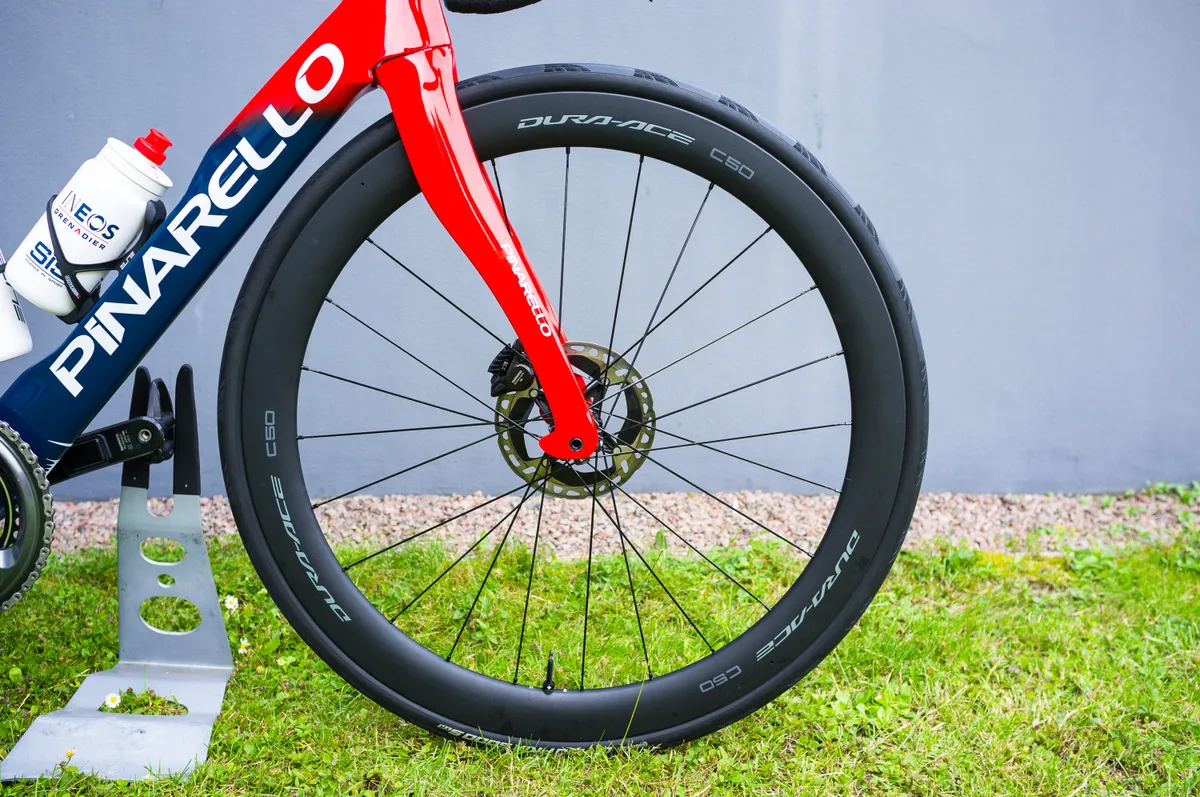
As you’d expect, this latest iteration of the Dogma platform is claimed to be stiffer, lighter and more aerodynamic than the previous Dogma F12.
The Dogma F continues with Pinarello’s distinctive wavy-tube design philosophy, with the kinked Onda fork being particularly distinctive.
The frameset also uses asymmetric tube profiles, which Pinarello claims helps to balance out asymmetrical pedalling and braking forces.
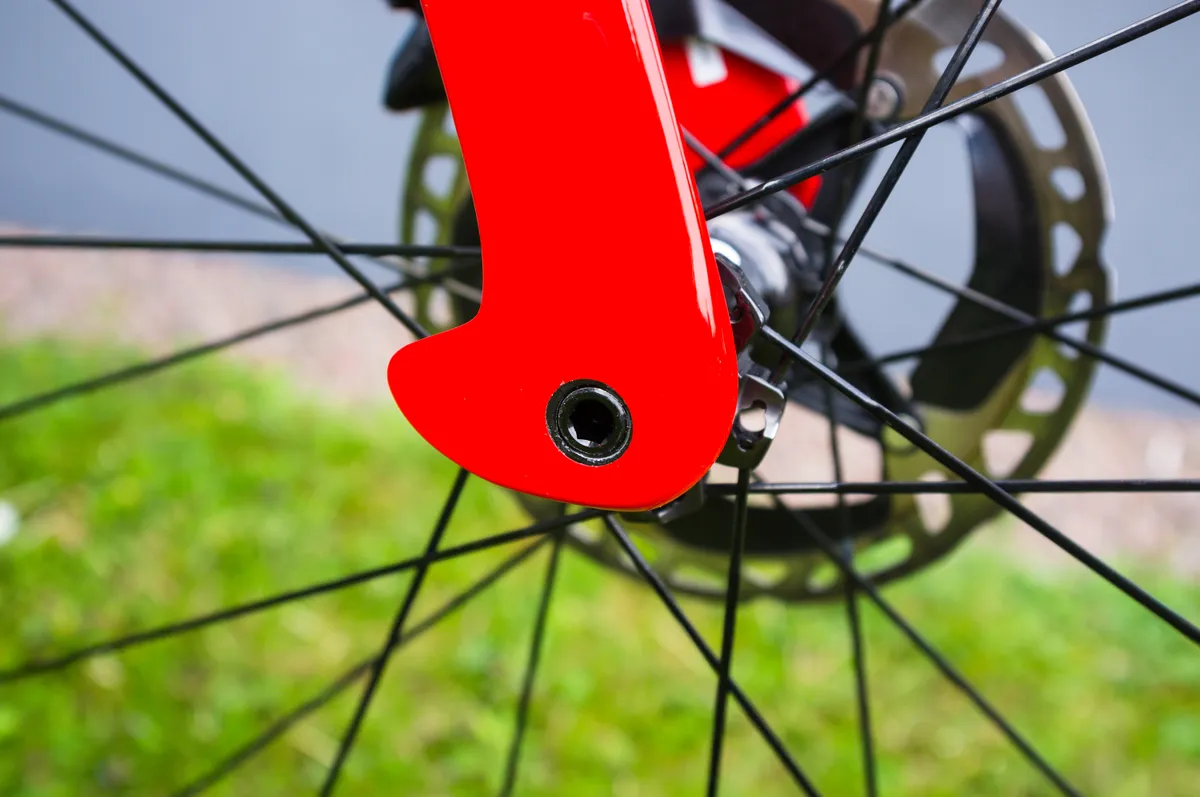
A lightweight aero all-rounder (apparently)
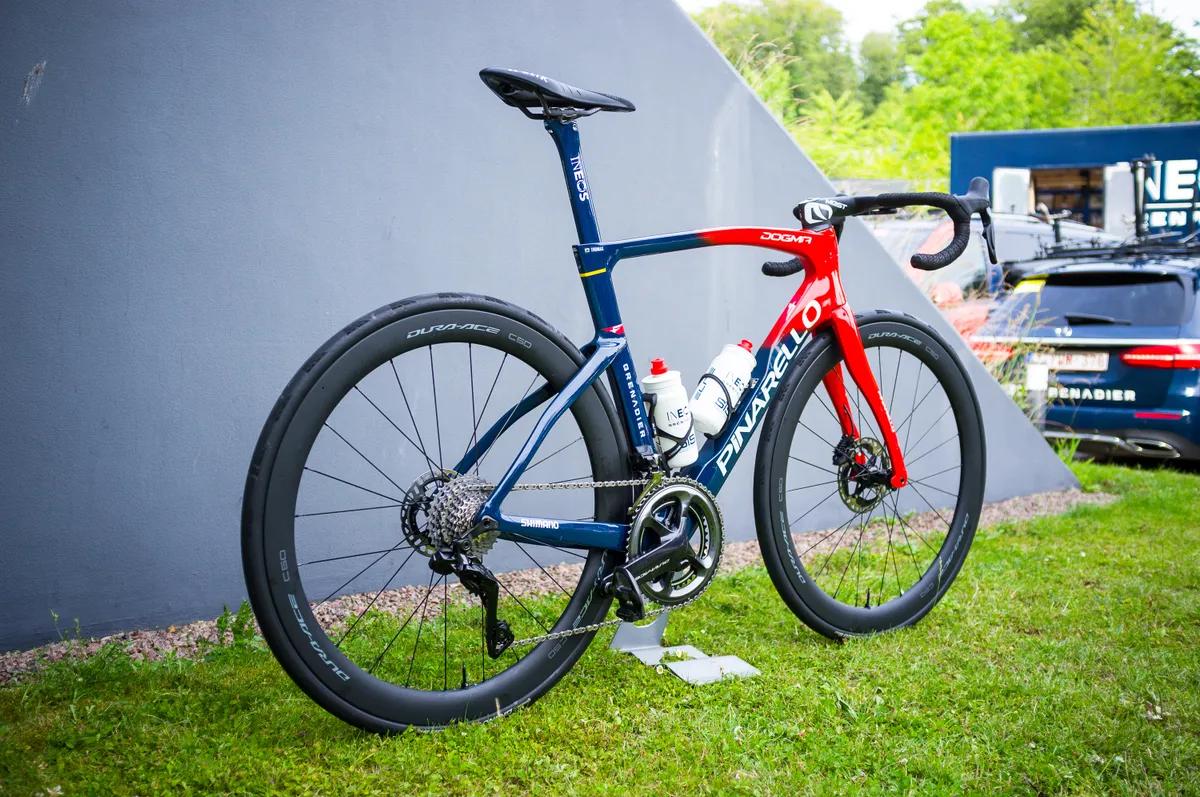
While all of the pro bikes we saw at Tour’s Grand Depart, in Copenhagen, Denmark, weighed around 7.6 to 8.3kg, the Pinarello Dogma F is claimed to be an aero road bike that can compete on the scales, too.
With an understandable eye on protecting rider health and valuable team bikes, we sadly weren’t granted permission to weigh Thomas’s bike.
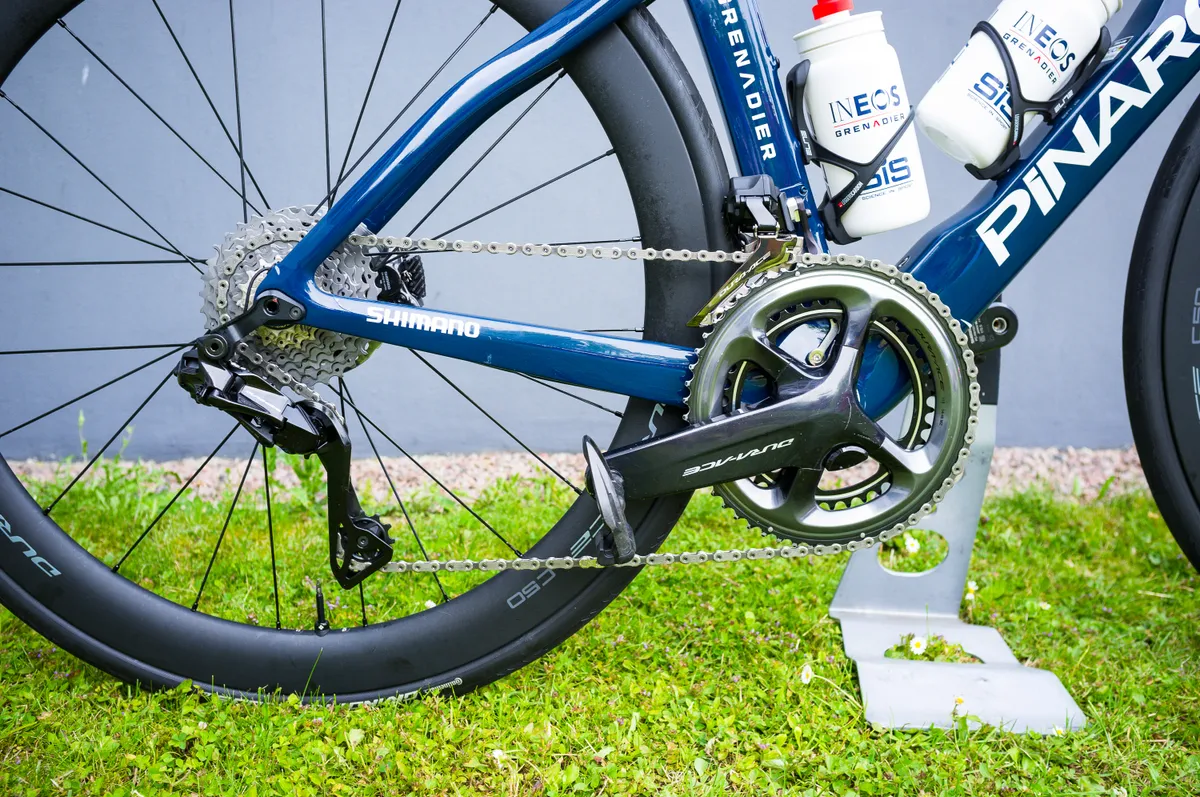
At the time of its launch, however, Pinarello claimed a size 53cm Dogma F built with Shimano Dura-Ace Di2 R9100 (the previous, 11-speed generation) and DT Swiss ARC 1400 wheels weighed 6.8kg – bang on the UCI’s minimum bike weight limit.
Thomas rides a size 56cm frame, and his bike was also equipped with important extras such as Shimano Dura-Ace R9100 pedals, an out-front bike computer mount and two Elite Leggero carbon bottle cages.
It also has the latest 12-speed Shimano Dura-Ace Di2 R9200 groupset, which is around 35g heavier than the previous R9100 groupset (although Thomas is still using the old R9100-P power meter crankset).
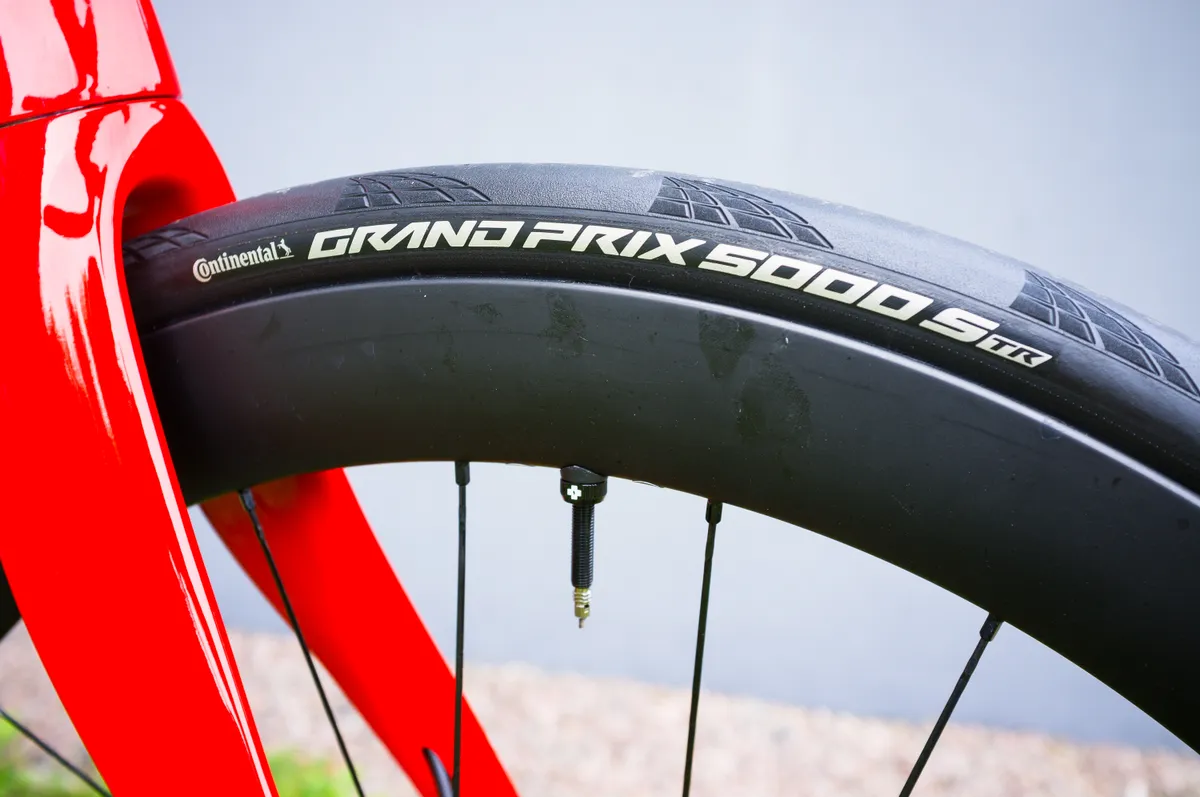
When we photographed Thomas’s bike at the team hotel in Copenhagen, it was equipped with Shimano Dura-Ace R9200 C50 TL carbon wheels and Continental GP5000 S TR tyres.
Both Thomas and Pidcock switched to the slightly lighter, shallower Dura-Ace R9200 C36 TL carbon wheels for the mountainous stages in the Alps, with a 36mm rim depth instead of 50mm.
Thomas's bike is also equipped with a 54-40t crankset.
Though that might seem big to amateur cyclists, 54-40t is quickly becoming the new standard in the professional peloton, and monster chainrings are a key tech trend at this year’s Tour.
Those chainrings are complimented by a 11-34t cassette at the rear, giving Thomas enough range for huge climbs such as Alpe d’Huez and the Col du Galibier.
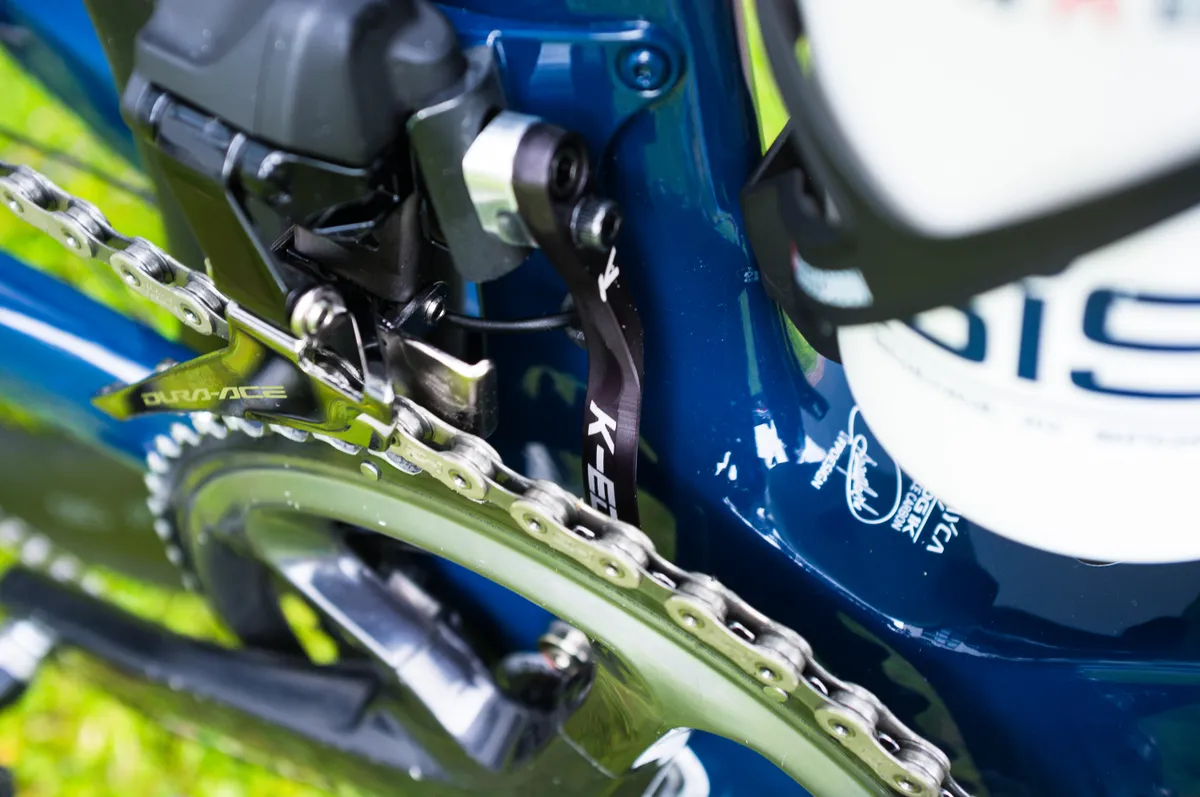
No X-Light?
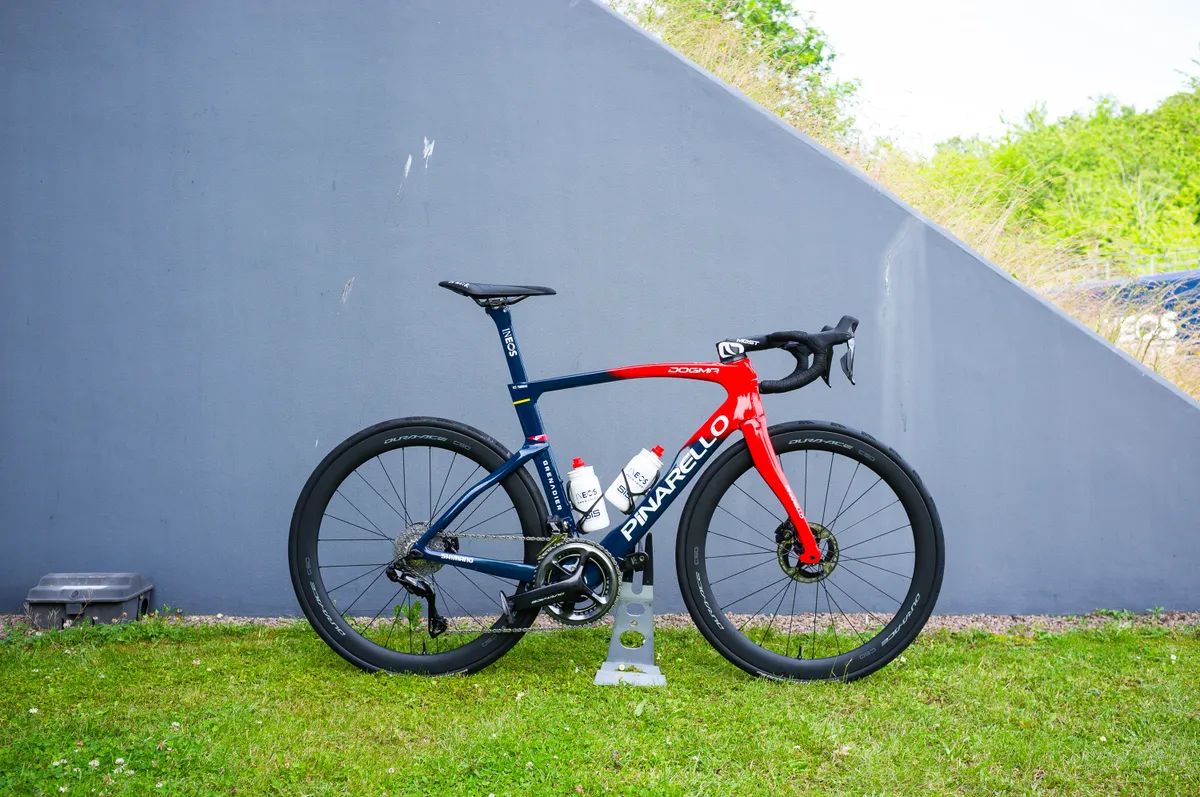
In the past, we’ve seen Pinarello provide Team Ineos-Grenadiers (formerly Team Sky) with special, lightweight versions of the Dogma, such as the Dogma F10 X-Light used by former team rider (and four-time Tour winner) Chris Froome.
The X-Light bikes typically featured special carbon lay-ups and minimalist paint jobs to help shave off every last gram.
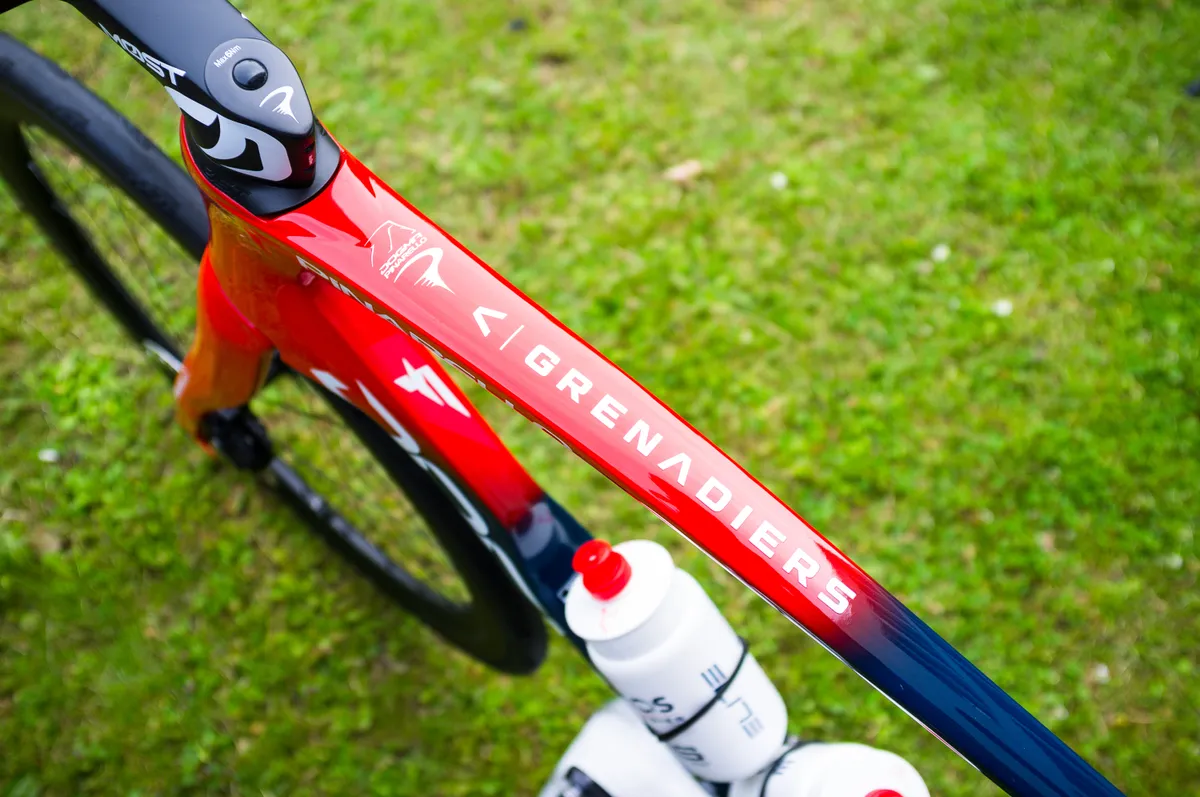
Thomas and Pidcock, however, appear to be using standard Dogma F framesets with team-issue paint jobs.
So while we don’t know exactly how much this bike weighs, perhaps the team have simply decided it's ‘light enough’ for the job.
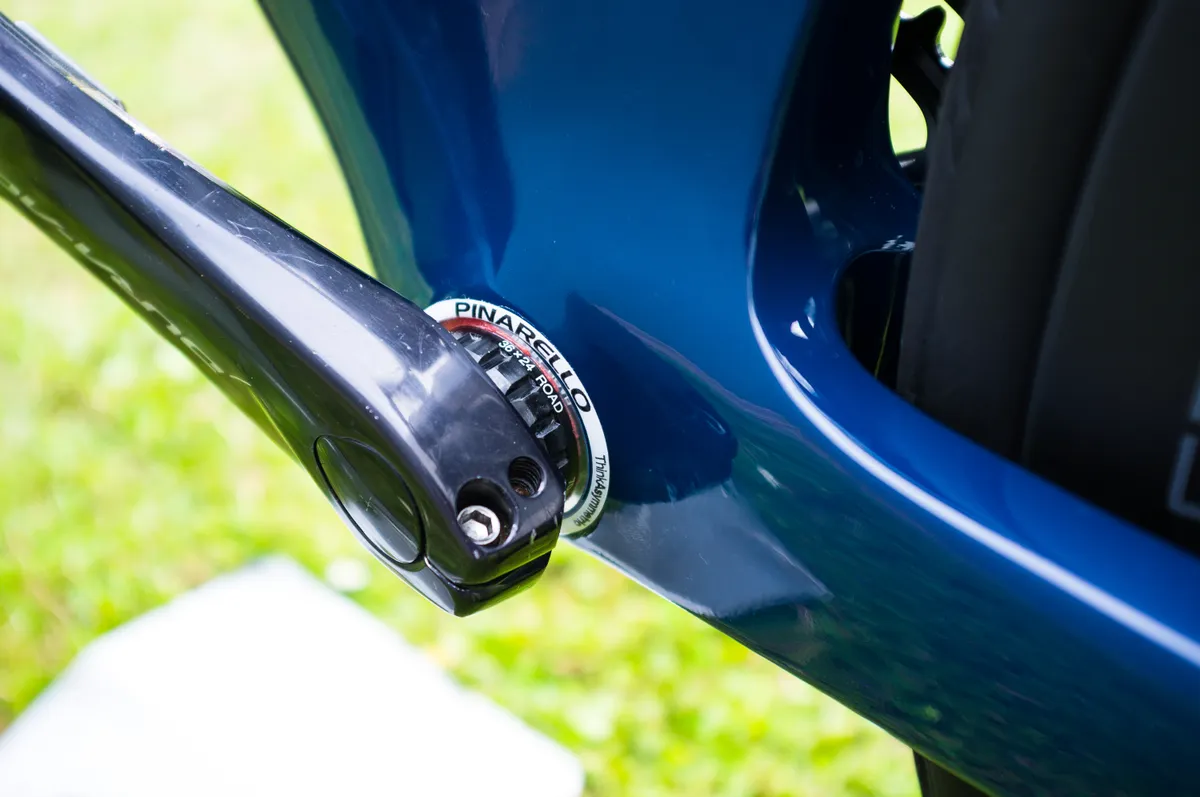
Finishing touches
Up front, Thomas uses a Most Talon integrated handlebar.
It has an aero-profiled bar and stem, and helps route the hydraulic hoses fully internally into the frameset.
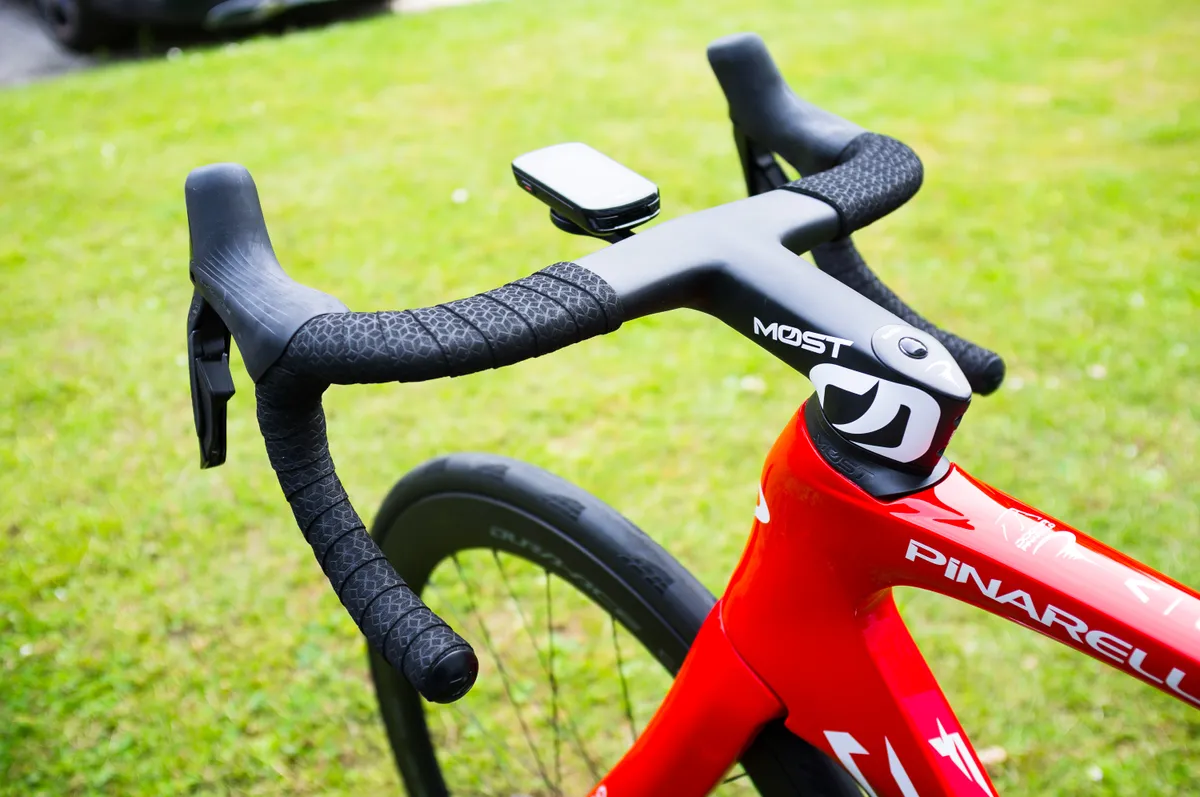
Thomas runs a solitary 5mm spacer under his stem. Combined with an inline seatpost, this gives him a fairly aggressive position on the bike, although that’s not unusual within the professional peloton.
Thomas’ handlebars are also finished with some exceptionally neat handlebar tape – with no electrical tape used to secure the ends on the tops. Presumably, the mechanics use glue instead.
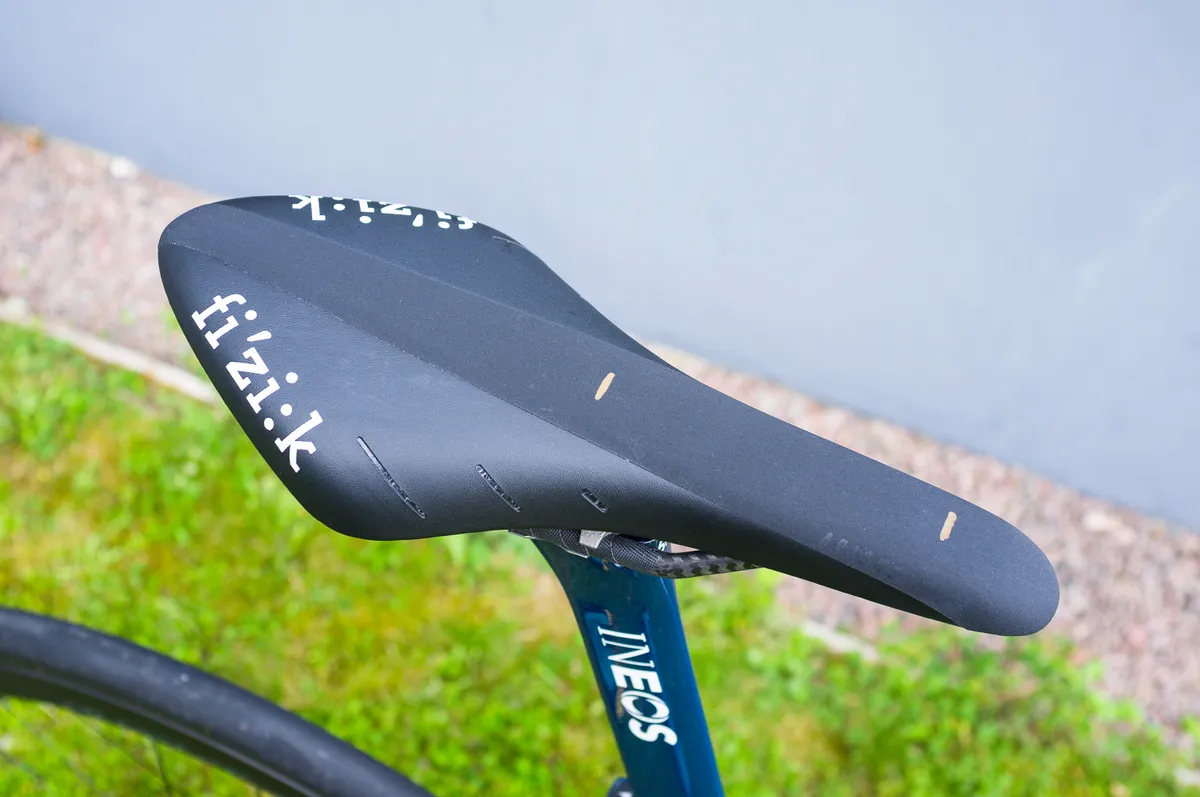
A Fizik Arione R carbon saddle is the Welshman’s perch of choice – a fairly long, old-school option, when many of the best road bike saddles are getting shorter and often have a central cut-out to reduce soft tissue pressure.
It’s a saddle Thomas has stuck with throughout his career, though, so it clearly suits him.
